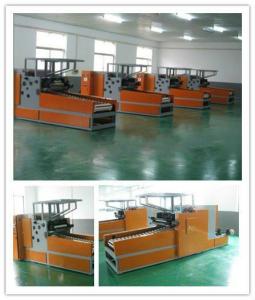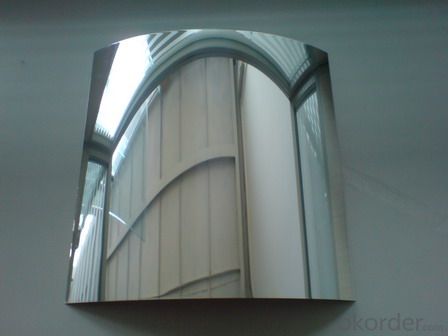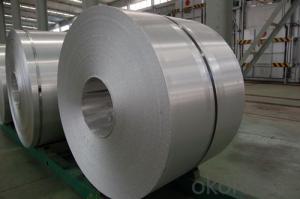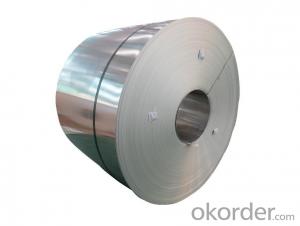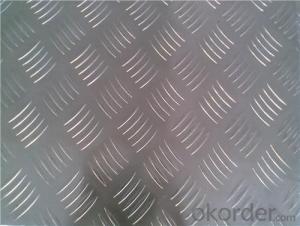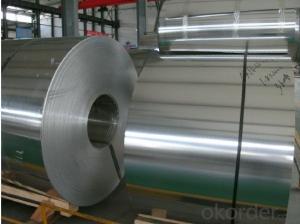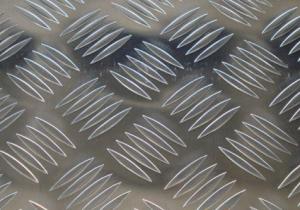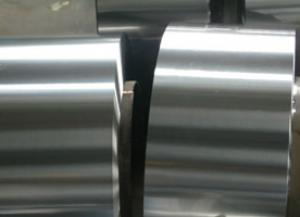Painted Aluminum Coil Sheet Sds for Cold Rolling Re-Passing
- Loading Port:
- Shanghai
- Payment Terms:
- TT OR LC
- Min Order Qty:
- 5 m.t.
- Supply Capability:
- 50000 m.t./month
OKorder Service Pledge
OKorder Financial Service
You Might Also Like
Specification
1.Structure of Aluminium Coils for Cold Rolling Re-Passing
Aluminium Coils for Cold Rolling Re-Passing is one semi-finished aluminium material. This strip can be rolled down to aluminium coil,sheet,circle ect. The alloy AA1050 is widly used in building, industry ect. Its weight is much lower than steel. So many customers choosed aluminium material instead of steel.
2. Main features of Aluminium Coils for Cold Rolling Re-Passing
a.We have our own mills and can produce mill finished aluminium coils, so we can control the production cost better.
b.Professional after-sale service---We have more than 15 years exportation experience and you need not worry about the exporation problems.
c.Fast delivery time---We can control the delivery time within 35 days.
3. Image of Aluminium Coils for Cold Rolling Re-Passing
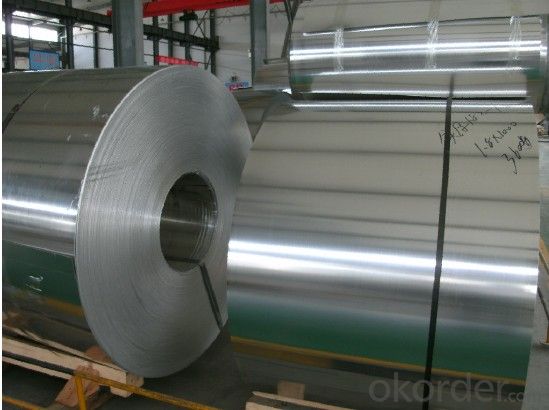
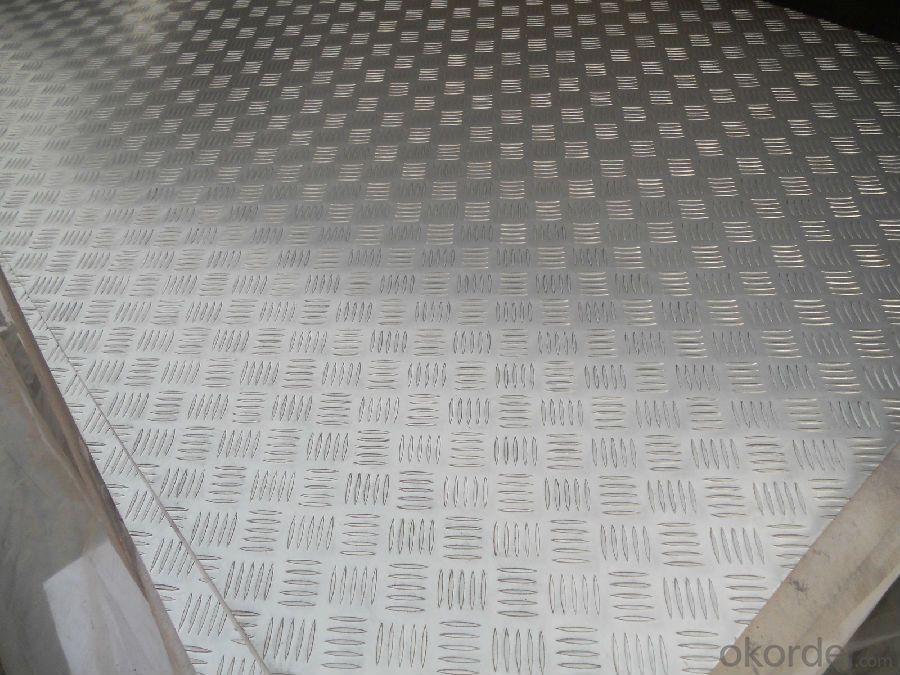
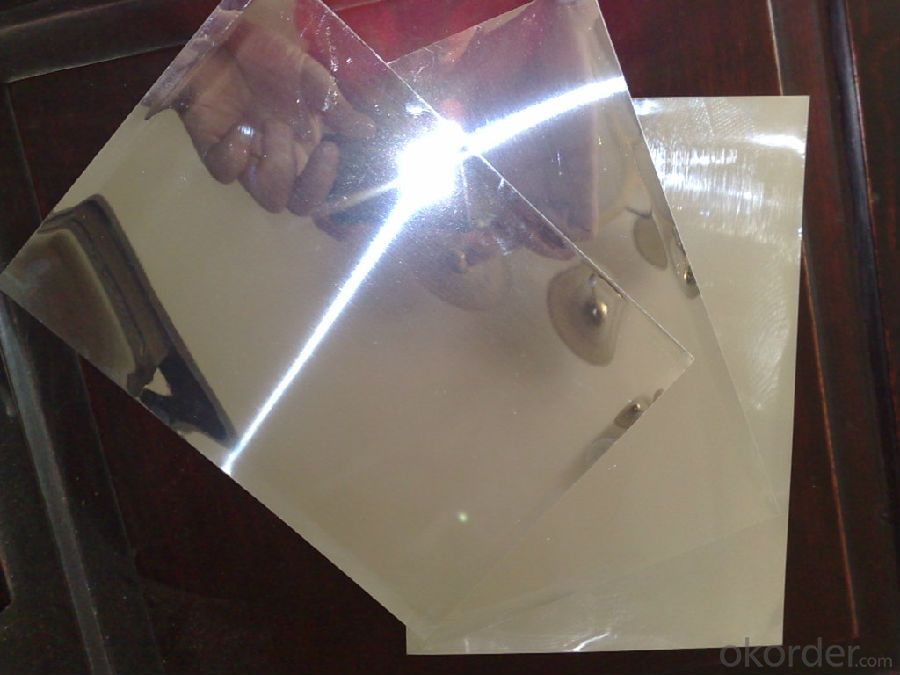
4. Product Specification of Aluminium Coils for Cold Rolling Re-Passing
| ALLOY | TEMPER | THICKNESS | COATING THICKNESS | WEIGHT |
| AA1050 | H14 | 3-8MM | 22-25 MICRONS | 3-5 TONS |
5.FAQ:
What is the quality standard?
---Usually our standard is GB3880-2006
What is the largest width?
---It is 2300mm
What is the MOQ?
---Usually we can accept 80 tons.
- Q: What are aluminum coils used for and what are their applications?
- <p>Aluminum coils are versatile metal products that serve various purposes. They are primarily used in construction, manufacturing, and packaging industries. Some common applications include roofing and siding materials, heat exchangers, food and beverage cans, automotive parts, and electrical components. Aluminum coils are valued for their lightweight, corrosion resistance, and high thermal and electrical conductivity, making them ideal for a wide range of applications where durability and efficiency are required.</p>
- Q: Are aluminum coils suitable for architectural cladding?
- Architectural cladding can indeed utilize aluminum coils. Aluminum, a versatile and aesthetically pleasing material, is widely used in the construction industry due to its lightweight nature and durability. Aluminum coils can be easily shaped into various forms and sizes, making them perfect for architectural cladding applications. One of the notable advantages of using aluminum coils for cladding is their resistance to corrosion. Aluminum naturally develops a protective oxide layer, preventing rusting and deterioration over time. Consequently, aluminum proves to be a durable and low-maintenance option for architectural cladding. Moreover, aluminum coils offer a wide array of finishes and colors, providing greater design flexibility. Architects and designers can paint or coat them to match any architectural style or design concept, making aluminum coils a favored choice. Furthermore, aluminum is an environmentally friendly material. It is fully recyclable and has a significantly lower carbon footprint compared to cladding materials like steel or concrete. This makes aluminum coils a sustainable option for architectural projects. To sum up, aluminum coils are indeed suitable for architectural cladding due to their durability, corrosion resistance, design flexibility, and environmental benefits.
- Q: Why the aluminum sheet crack after?
- Maybe the crack existed during welding but you didn’t notice. And then it expands and becomes obvious when acted on by external force in circling process. The reason may be the welding craft. Besides, I suggest more comprehensive tests after welding, such as penetrant test.
- Q: What are the common surface defects found in aluminum coils?
- Surface defects commonly found in aluminum coils include various issues such as scratches, dents, corrosion, streaking, oxide spots, oil stains, and roll marks. Scratches are visible lines or marks that can occur during handling, transportation, or processing, impacting both the appearance and functionality of the coil. Dents are depressions or deformations that can result from mishandling or impact during transportation or storage, affecting the coil's structural integrity and aesthetics. Corrosion, which can appear as pitting, discoloration, or roughness, is a concern in environments with high moisture levels or exposure to chemicals, weakening the coil and compromising performance. Streaking, thin lines or bands on the surface, may indicate uneven coating or surface contamination, potentially pointing to manufacturing issues. Oxide spots are small discolored areas caused by aluminum oxide formation during processing or storage, mainly affecting aesthetics. Oil stains are greasy or oily marks resulting from improper cleaning or handling, impacting coating adhesion and requiring additional cleaning or treatment. Roll marks, elongated depressions or raised lines caused by the rolling process, are generally unavoidable but excessive or severe instances can negatively affect appearance and quality. Implementing proper quality control measures, handling techniques, and storage practices can help minimize or prevent these surface defects in aluminum coils.
- Q: Can aluminum coils be used for food storage and processing?
- Yes, aluminum coils can be used for food storage and processing. Aluminum is a popular choice for food storage and processing due to its many beneficial properties. It is lightweight, strong, and resistant to corrosion, which makes it ideal for maintaining the quality and freshness of food. Aluminum coils can be used to manufacture various food storage and processing equipment such as containers, pans, trays, and foil. Additionally, aluminum has excellent thermal conductivity, which allows for efficient cooling and heating of food. It is also impermeable to light, moisture, and oxygen, which helps to protect food from spoilage and contamination. Overall, aluminum coils are a reliable and safe option for food storage and processing applications.
- Q: How much cube is the 0.9mm aluminum rolling?
- This is a common problem. Anyone who had received high school education can calculate it very quickily. One way is to calculate sectional area with circular area, then times the thickness of the aluminum rolling. Another way is to use the outer diameter circular area to subtract the core area and then times the thickness of aluminum rolling.
- Q: Are aluminum coils suitable for marine applications?
- Yes, aluminum coils are suitable for marine applications due to their excellent corrosion resistance properties in saltwater environments.
- Q: How are aluminum coils used in the production of window frames?
- Aluminum coils are commonly used in the production of window frames due to their numerous advantages. These coils are typically made of high-quality aluminum alloy, which provides strength, durability, and resistance against corrosion. To begin the production of window frames, aluminum coils are first unrolled and cut into the desired lengths. These coils are available in various thicknesses, allowing manufacturers to produce window frames of different sizes and specifications. The aluminum coils are then shaped into the required profiles using specialized machines. These profiles can be extruded, bent, or rolled into different shapes, such as rectangular or curved, depending on the design of the window frame. This flexibility in shaping allows for the creation of custom window frames to meet specific architectural requirements. Once the profiles are formed, they are joined together using different techniques like welding or mechanical fasteners. The lightweight nature of aluminum makes it easy to handle during the assembly process, reducing overall production time and costs. Additionally, aluminum coils can be treated with various surface finishes, such as anodizing or powder coating, to enhance their aesthetics and provide further protection against weathering and wear. These finishes also offer a wide range of color options, allowing window frame manufacturers to match the frames with the overall design of the building or the homeowner's preferences. Using aluminum coils in window frame production offers several advantages. Aluminum is a highly sustainable material as it can be recycled repeatedly without losing its properties. It is also lightweight, making the installation process easier and reducing the load on the structure. Moreover, aluminum is a good thermal conductor, which helps in improving energy efficiency by minimizing heat transfer. In conclusion, aluminum coils play a crucial role in the production of window frames. Their strength, durability, flexibility, and aesthetic options make them a preferred choice for manufacturers. Whether it is for residential or commercial applications, aluminum coils provide high-quality window frames that meet industry standards and enhance the overall appearance and performance of buildings.
- Q: What is the maximum operating temperature for aluminum coils?
- The maximum operating temperature for aluminum coils typically ranges from 200 to 250 degrees Celsius.
- Q: Can aluminum coils be custom-made to specific requirements?
- Yes, aluminum coils can be custom-made to specific requirements.
Send your message to us
Painted Aluminum Coil Sheet Sds for Cold Rolling Re-Passing
- Loading Port:
- Shanghai
- Payment Terms:
- TT OR LC
- Min Order Qty:
- 5 m.t.
- Supply Capability:
- 50000 m.t./month
OKorder Service Pledge
OKorder Financial Service
Similar products
Hot products
Hot Searches
Related keywords
